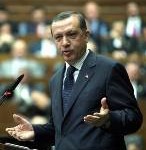 Turkish President Recep Tayyip Erdogan’s declaration that “the world is bigger than five” has emerged as a significant geopolitical slogan over the past decade. This phrase encapsulates his critique of the current structure of the United Nations Security Council (UNSC) and calls for a more inclusive and equitable international system. In exploring this motto, it is crucial to understand the context of its inception, its implications for global governance, and its reception on the international stage.Erdogan first voiced the phrase “the world is bigger than five” in 2013 during a speech at the United Nations General Assembly. The “five” refers to the permanent members of the UNSC — the United States, the United Kingdom, France, Russia, and China — who wield significant power, including the veto right that can block any substantive resolution. This power structure, established in the aftermath of World War II, was designed to maintain peace and security. However, Erdogan and others argue that it no longer reflects the geopolitical realities of the 21st century.
Turkish President Recep Tayyip Erdogan’s declaration that “the world is bigger than five” has emerged as a significant geopolitical slogan over the past decade. This phrase encapsulates his critique of the current structure of the United Nations Security Council (UNSC) and calls for a more inclusive and equitable international system. In exploring this motto, it is crucial to understand the context of its inception, its implications for global governance, and its reception on the international stage.Erdogan first voiced the phrase “the world is bigger than five” in 2013 during a speech at the United Nations General Assembly. The “five” refers to the permanent members of the UNSC — the United States, the United Kingdom, France, Russia, and China — who wield significant power, including the veto right that can block any substantive resolution. This power structure, established in the aftermath of World War II, was designed to maintain peace and security. However, Erdogan and others argue that it no longer reflects the geopolitical realities of the 21st century.
Erdogan’s critique is not solely rooted in abstract principles of fairness; it is also shaped by Turkey’s experiences and ambitions on the global stage. Turkey, positioned at the crossroads of Europe and Asia, has increasingly sought to assert itself as a regional power and a voice for the developing world. The Syrian civil war, in particular, highlighted the limitations and perceived injustices of the current UNSC framework, as geopolitical rivalries among the permanent members often led to deadlock and inaction, exacerbating humanitarian crises.
Implications for Global Governance
Erdogan’s motto advocates for a restructuring of the UNSC to include more countries, especially from the Global South. The current permanent members represent a post-World War II order that many argue is outdated, given the significant economic and political changes that have occurred since then. Emerging powers like India, Brazil, and South Africa, alongside longstanding powers like Japan and Germany, have increasingly called for permanent representation on the council. They argue that their inclusion would provide a more balanced and representative system, better reflecting contemporary global dynamics.
Moreover, Erdogan’s slogan touches on broader themes of equity and justice in international relations. The concentration of power within a small group of countries undermines the democratic ideals the UN purports to uphold. Many nations feel marginalized and unable to influence decisions that profoundly affect them, leading to a growing sense of disenfranchisement and frustration with the international system. By advocating for a world that is “bigger than five,” Erdogan is championing a vision of global governance that is more inclusive and democratic.
Reception and Impact
The international response to Erdogan’s call has been mixed. Among many countries in the Global South and emerging economies, there is significant support for the idea of a more representative UNSC. These nations see Erdogan’s critique as validating their long-standing grievances about their limited influence within international institutions. The African Union, for example, has repeatedly called for permanent representation on the UNSC, reflecting the continent’s growing importance on the global stage.
However, the current permanent members of the UNSC, particularly those who wield veto power, have shown little enthusiasm for reform. The existing structure grants them significant leverage in international affairs, and there is little incentive for them to dilute this power. This resistance highlights the broader challenges of reforming global institutions: entrenched interests and the complexity of reaching a consensus among a diverse set of stakeholders.
Conclusion
“The world is bigger than five” serves as a powerful critique of the existing international order and a call for a more equitable system of global governance. While Erdogan’s slogan resonates with many countries seeking greater representation and fairness, the path to reform is fraught with obstacles. The challenge lies not only in the resistance from powerful states but also in the need for a broader consensus on how a reformed UNSC would operate. Ultimately, Erdogan’s motto underscores the growing demand for a more inclusive and just world order, a vision that will require significant diplomatic effort and international cooperation to achieve.
Mehmet Fatih Oztarsu

 Nisan 14th, 2016
Nisan 14th, 2016  oztarsu
oztarsu  Posted in
Posted in